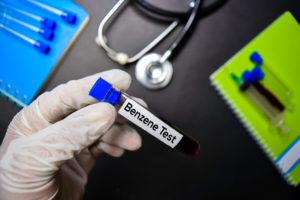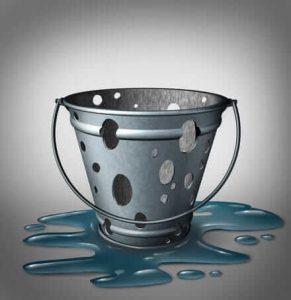
According to recent studies, many brand name sunscreens, including Neutrogena, Sun Bum, CVS Health, and Banana Boat may contain traces of benzene. A human carcinogen, benzene has the potential to cause cancer depending on the level of exposure. Due to several recent recalls, consumers using certain aerosol spray and lotion sunscreens should consider discontinuing their use.
Is Benzene Dangerous?
Benzene is a naturally occurring chemical that is also used in the production of plastics, resins and other synthetic fibers and rubbers. You can also find it in products like cigarettes, gasoline and in other industrial emissions. While a limited level of exposure to this chemical is not considered dangerous, prolonged exposure has been linked to cancer.
In higher doses, benzene causes cells to work improperly. As a result, it can decrease the production of white blood cells and damage the immune system. Symptoms of short-term exposure include:
- Drowsiness
- Dizziness/ Headaches
- Tremors
Prolonged benzene exposure can result in:
- Damaged bone marrow and a decrease in red blood cells
- Anemia
- Compromised immune system
- Leukemia and other cancers
For a free legal consultation with a Benzene Exposure lawyer serving Birmingham, call 800-537-8185
Recalls on Sunscreens Including Benzene
Due to the potential risk for cancer, Johnson & Johnson recently issued a voluntary recall for several Neutrogena and Aveeno brand sunscreen products. If you have purchased or use these products, Johnson & Johnson recommends their immediate disposal. At this time, it is expected that many other brands will follow suit and recall sunscreens containing certain levels of benzene.
Based on the latest studies, some researchers are now asking U.S. regulators to pull more sunscreens off the market, including brands such as Coppertone, Banana Boat, and Neutrogena. This is based on evidence they contain a second potential carcinogen, benzophenone. Products containing the active ingredient octocrylene are suspected to also contain benzophenone, which is also believed to interfere with estrogen levels in women.
The Impact of Benzene Sunscreens
When traces of benzene are present in lotion and aerosol spray sunscreens, they come in direct contact with the skin of unsuspecting customers. Scientific studies have proven that prolonged exposure can be linked with leukemia and other cancers. Because benzene is not an ingredient intentionally included in these products, sunscreen manufacturers are investigating the potential source of this contamination and any additional future impacts it may cause.
Cancer and Benzene Exposure
The International Agency for Research on Cancer notes that benzene exposure is linked to the following cancers:
- Acute Myeloid Leukemia
- Acute Lymphocytic Leukemia
- Chronic Lymphocytic Leukemia
- Multiple Myeloma
- Non-Hodgkin’s Lymphoma
Leukemia is a cancer that compromises blood-forming tissues, including bone marrow where blood cells are produced. When white blood cell production slows, it compromises the body’s immune system, resulting in various symptoms such as:
- Fatigue and muscle weakness
- Frequent and severe infections
- Easy bleeding and/or bruising
Which Sunscreens Have Been Contaminated with Benzene?
According to recent studies, at least eight different sunscreens contained benzene levels 2ppm or higher. These products included:
- Neutrogena Beach Defense
- Neutrogena Cool Dry Sport
- Neutrogena Invisible Daily
- Neutrogena Ultra Sheer
- Aveeno Protect + Refresh
- SunBum Cool Down Gel
- CVS Health After-sun Aloe Vera Soothing Spray
- Fruit of the Earth Aloe Vera Gel
According to Valisure, over 50 different sunscreens were tested and showed benzene levels of 1ppm or higher.
Have You Used a Sunscreen Product Containing Traces of Benzene?
If you have been in contact with any of these sunscreen products contaminated with benzene, researchers suggest you discontinue your use immediately and discard these products. If symptoms consistent with benzene exposure occur, speak to a medical professional immediately.
A Morris Bart attorney from our Birmingham office may be able to help you pursue compensation if you are experiencing symptoms related to benzene exposure linked to any of the identified sunscreens. An attorney can answer your questions and instruct you on possible next steps during a complimentary consultation. We are a contingency fee firm, meaning you do not pay us unless compensation is awarded in your case. Call (205) 380-4158 to speak with a Morris Bart attorney for free today.
Questions?Call 800-537-8185
to find a Morris Bart office near you.



